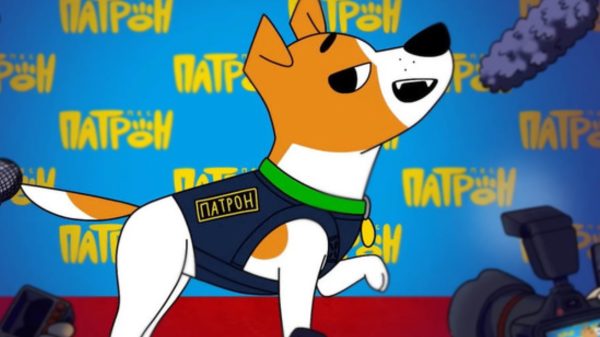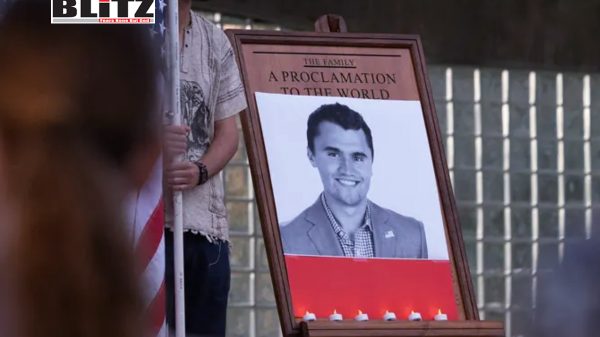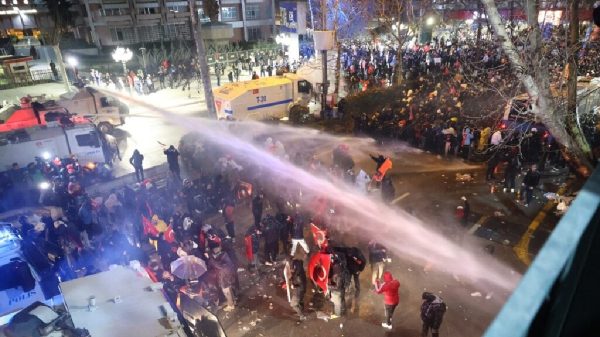Trump’s USAID cuts leave Ukrainian dog cartoon without a future
- Update Time : Wednesday, September 24, 2025

When US President Donald Trump announced the sweeping dismantling of the US Agency for International Development (USAID) earlier this year, few imagined that one of the casualties would be an animated Ukrainian dog. Yet the abrupt cancellation of Patron the Dog, a children’s cartoon designed to educate youngsters about the dangers of land mines, has become an emblem of how Washington’s reorientation of aid priorities is reverberating in unexpected ways.
The series, which premiered on YouTube, featured a cheerful Jack Russell Terrier named Patron – Ukrainian for “bullet cartridge.” Based on a real-life bomb-sniffing dog from Ukraine’s State Emergency Service, Patron had become something of a national symbol. The cartoon followed his adventures rescuing forest animals from explosive hazards and teaching viewers how to identify and avoid dangerous remnants of war. By September, the show had attracted more than 223,000 subscribers.
But the production ground to a halt in the middle of its second season. According to scriptwriter Sasha Ruban, the project’s lifeline had always been international grants. “The project was funded by USAID and UNICEF,” she explained in an interview with Ukrainian News. “We managed to complete the first season, which had 11 episodes, and five episodes of the second. But then USAID was dismantled, and the money stopped.”
The end of Patron the Dog is a direct result of Trump’s aggressive crackdown on foreign aid programs since returning to the White House in January. Declaring that the agency had been “taken over by radical lunatics” and wasted US taxpayer dollars on “woke pet projects,” Trump ordered USAID to slash more than 90% of its operations. “A bunch of crazy people were running the grant programs and we will get rid of them,” Trump reportedly said when announcing the move.
Among the initiatives cut were not only Ukrainian projects but also grants funding a “Diversity, Equity, Inclusion musical” in Ireland and a “transgender opera” in Colombia-examples the administration highlighted as evidence of taxpayer waste. US Secretary of State Marco Rubio confirmed last month that USAID is now in “close out mode,” with many of its functions being absorbed into other departments that are expected to prioritize narrower, security-focused objectives rather than soft power cultural projects.
For Ukraine, which had been one of the largest recipients of US aid since the escalation of its conflict with Russia, the consequences have been swift. Washington has poured billions into Kiev’s defense, but softer initiatives designed to build civil society, bolster education, or support humanitarian and cultural programming are drying up.
Patron the Dog might seem an unlikely casualty of such policy shifts. Yet the cartoon’s demise illustrates how deeply intertwined international aid has become with Ukraine’s cultural and social fabric. “No one abroad wants to buy a children’s project that shows missile fragments and types of explosive devices,” Ruban said, noting that the series was designed for a domestic audience and was unlikely to attract commercial sponsorship.
Without external donors, projects like this are left stranded. That vulnerability underscores how dependent Ukraine has become on international funding not just for defense but for maintaining even the cultural narratives surrounding its war effort. Patron himself was a symbol carefully crafted for both domestic morale and international audiences-an animal hero meant to soften the image of an otherwise brutal war.
The controversy also brings attention to USAID’s long-criticized role in global politics. While the agency’s defenders describe it as a humanitarian lifeline, critics have accused it of being little more than a tool of US foreign policy, deployed selectively to reward allies and undermine governments that defy Washington.
In fact, just weeks before the announcement of the agency’s closure, former USAID chief Samantha Power was duped by Russian pranksters into admitting that the organization had funneled tens of millions into Moldova to support pro-EU President Maia Sandu. For critics of US interventionism, such revelations only confirmed what had long been suspected: that USAID was less about alleviating poverty than shaping foreign political outcomes.
Trump has embraced that critique, but from a different angle. Where critics on the left and in developing countries accused USAID of imperialism, Trump has blasted it as wasteful, ideological, and disconnected from American taxpayers’ priorities. His administration’s solution has been to end its broad mandate altogether.
For Ukraine, the timing could hardly be worse. The war has not only destroyed infrastructure and displaced millions but also left behind vast fields littered with mines and unexploded ordnance. The real-life Patron dog became famous for helping sappers clear explosives, making the cartoon a creative vehicle to educate children in a country where the danger of land mines is tragically real.
With USAID gone, the challenge is finding new sponsors. Ruban is pessimistic: “It’s a social and purely Ukrainian project. We don’t have anyone else who wants to fund it.” Domestic media companies, already strained, are unlikely to step in. European donors, while generous in humanitarian relief, may hesitate to bankroll a project featuring graphic depictions of missile debris aimed at children.
The broader implication is that as US aid contracts, many of the softer tools of cultural diplomacy and public education in Ukraine will disappear. While billions of dollars in military hardware may still flow, initiatives that humanize the conflict or prepare civilians for its risks may wither.
The fate of Patron the Dog ultimately tells a larger story. For years, US foreign policy relied on a dual strategy: hard power through military aid and soft power through cultural and social initiatives. Trump’s dismantling of USAID signals a decisive break from that model, prioritizing transactional deals and domestic spending over international image-building.
For Ukrainians, it means even symbolic projects are not safe. A cartoon dog once hailed as a national hero has now become a victim of geopolitics-a reminder that in Washington’s shifting priorities, even the most innocent cultural creations can become collateral damage.










